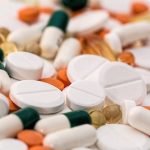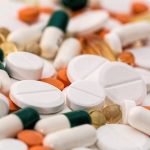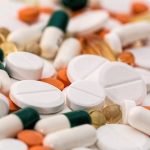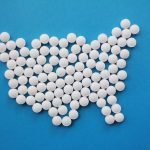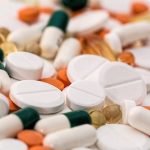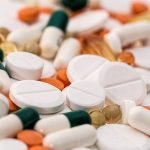Daily aspirin may increase cancer growth and spread in older people
In a new study, researchers found that a daily, low dose of aspirin may increase the risk for development and metastasis as well as...
These 3 common drugs could lower lung cancer risk and death
In a new study, researchers found that the combined use of aspirin, statins, and metformin is associated with decreased lung cancer incidence and death.
The...
Aspirin may drive cancer growth in some older people, this study shows
In a new study, researchers found that for older adults with advanced cancer, initiating aspirin may increase their risk of disease progression and early...
Both aspirin and this diet could prevent colon cancer
A diet rich in fruits and vegetables and a daily dose of aspirin have one thing in common—both can help prevent colorectal cancer.
Yet scientists...
Aspirin may prevent blood clots in COVID-19, study shows
In a new study, researchers found changes in blood platelets triggered by COVID-19 could contribute to heart attacks, strokes, and other serious complications in...
An aspirin a day keeps your bowel doctor away
In a new study, researchers found that a regular dose of aspirin to reduce the risk of inherited bowel cancer lasts at least 10...
Risks and benefits of low-dose aspirin you need to know
In a new study, researchers found that low-dose aspirin strongly lowers heart disease risk but increases the risk of bleeding.
The research was conducted by...
Regular aspirin use may help lower these cancers
In a new review study, researchers found that regular aspirin use is linked to a lower risk for colorectal and other digestive tract cancers.
The...
Aspirin may help prevent and treat migraine headaches
In a new study, researchers have proposed aspirin as a possible option for consideration by primary care providers who treat the majority of patients...
Aspirin may help reduce risks of pancreatic and liver cancers
In a new study, researchers found aspirin is linked to a reduction in the risk of developing several cancers of the digestive tract, including...

